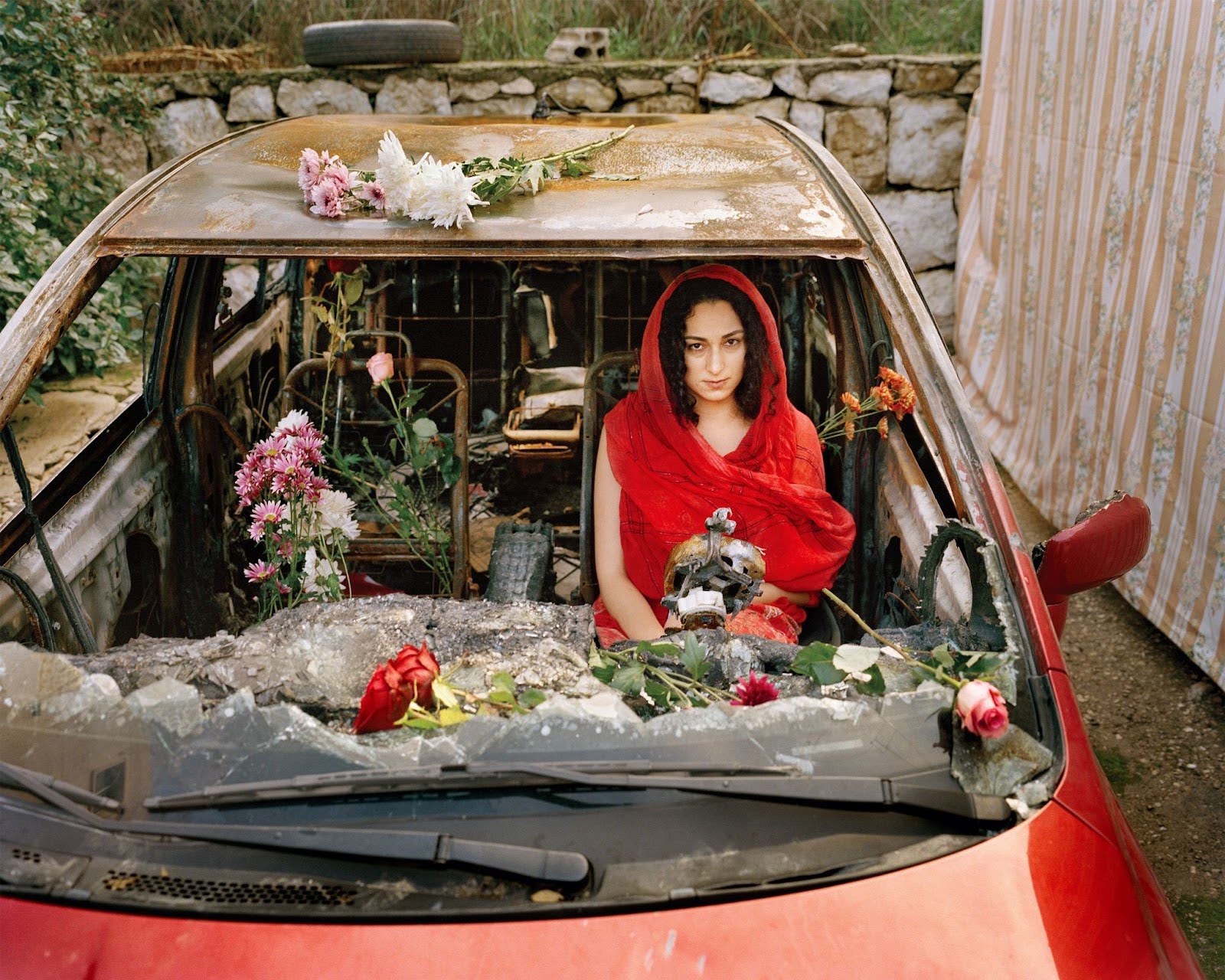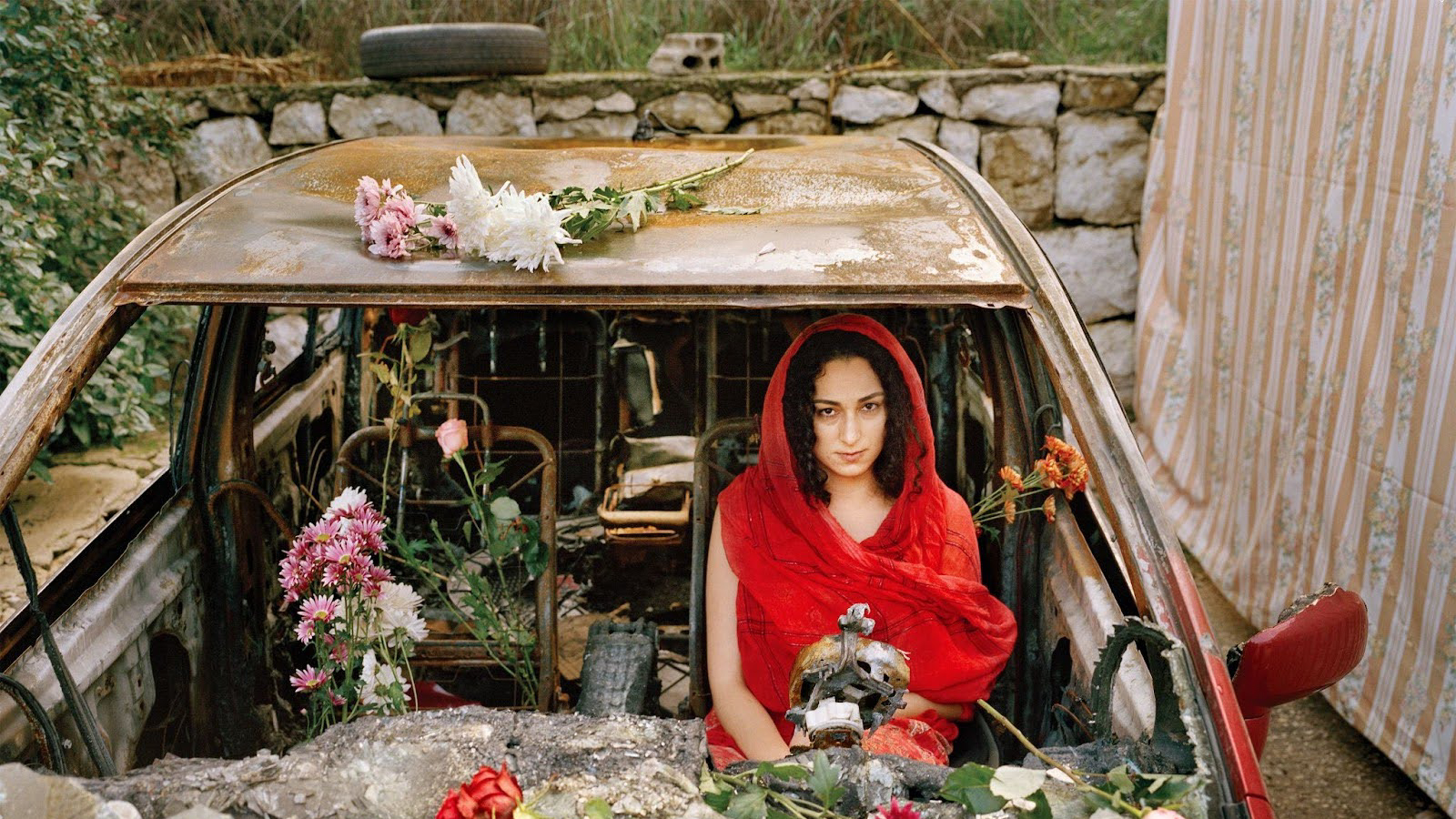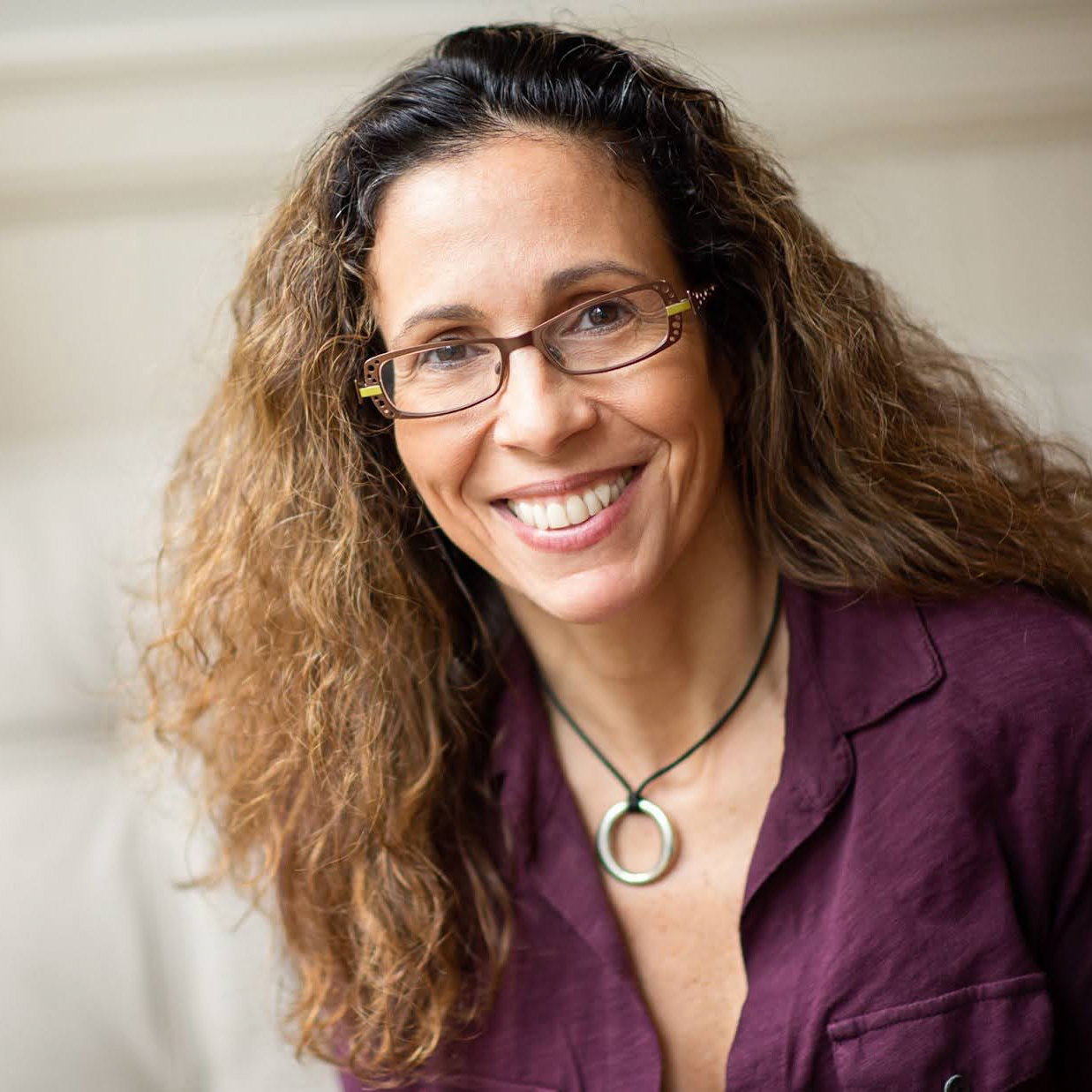
Introduction
 Farah (2020), from the series 50 Years Later, Courtesy of Rania Matar
Farah (2020), from the series 50 Years Later, Courtesy of Rania MatarLouder Than Hearts features the work of ten women artists from the Arab World and Iran who capture the resilience, strength, beauty, and creativity of women in the region, often in the face of great adversity.
The leading Egyptian, Iranian, Jordanian, Lebanese, Palestinian, Saudi, and Yemeni photographers represented in the show explore the diversity of experiences and personal narratives told by women across a vast geographic area. Each project showcased is deeply personal, each story distinct. Yet together, these works underscore the shared humanity of women, weaving together the threads of personal and collective life experiences while providing insights into the artists' perspectives and realities, as well as their strengths and vulnerabilities.
Iranian women dye their hair shades of purple and blue in defiance of the state; Lebanese women stand tall in the midst of their country’s political chaos and destruction; Egyptian women grapple with the challenges of single motherhood as well as body image and the countless societal pressures and expectations that accompany it. Through their work, the artists weave together the threads of their protagonists’ collective life experiences, amplifying the role of women as voices of strength, courage, and hope.
The exhibition reveals the role of both the photographers and their protagonists as trailblazers and catalysts for change in their communities, providing a portrait of women in the Middle East as voices of peace, courage, and hope.
The exhibition is presented in partnership with Tribe, a non-profit publication and platform focused on documenting photography, film and video from the Arab world, and is made possible with the generous support of MEI Board of Governors member and professional photographer Anne B. Keiser.
The title is adopted from a poetry collection on love and loss by Lebanese poet Zeina Hashem Beck.

Curator's Tour
Watch a guided tour of the works featured in "Louder Than Hearts" by curator Rania Matar.

About the Artists
Rehaf Al Batniji, Tasneem Alsultan, Thana Faroq, Tanya Habjouqa, Shiva Khademi, Heba Khalifa, Safaa Khatib, Rania Matar, Newsha Tavakolian, Carmen Yahchouchi.
About the Curator
Rania Matar

Born (1964) and raised in Lebanon, Matar moved to the U.S. in 1984. As a Lebanese-born Palestinian /American artist and mother, her cross-cultural experience and personal narrative inform her photography.
Her photography captures intimate moments that transcend borders and cultures and explores themes of personal & collective identity through photos of women in the US and the Middle East.
Matar’s work has been widely exhibited in museums worldwide including Museum of Fine Arts, Boston, Carnegie Museum of Art, National Museum of Women in the Arts, Minneapolis Institute of Art, Fotografiska, Institut du Monde Arabe, Los Angeles County Museum of Art, and more. It is part of the permanent collections of several museums.
She had solo shows at the Cleveland Museum of Art, Amon Carter Museum of American Art, American University of Beirut Museum, Huntsville Museum of Art, Rollins Museum of Art, and Fitchburg Museum of Art.
Matar received several awards including: 2022 Leica Women Foto Award, 2018 Guggenheim Fellowship, 2017 Mellon Foundation artist-in-residency grant, 2021 (2011, 2007) Massachusetts Cultural Council Artist Grants, 2011 Griffin Museum of Photography Legacy Award. She was a finalist for the Oskar Barnack Award 2023, Arnold Newman Prize 2022, Outwin Boochever Portrait Competition with an exhibition at Smithsonian National Portrait Gallery/DC, and Taylor Wessing Prize with an exhibition at the National Portrait Gallery, London. In 2008 she was a finalist for the Foster Award at the ICA/Boston, with an accompanying solo exhibition.
She published four books: SHE, 2021; L’Enfant-Femme, 2016; A Girl and Her Room, 2012; Ordinary Lives, 2009.










